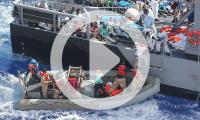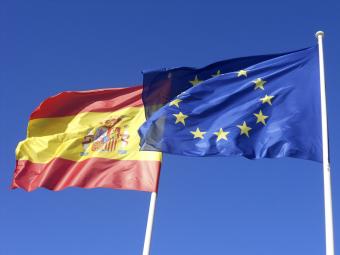International Organizations
Recent Activity

As the European Council gears up to move onto the next phase of Brexit negotiations, this MPI Europe webinar features findings from an MPI Europe report that offers a demographic profile of the approximately 1 million UK citizens living in the European Union and examines the ways in which many are likely to see their futures significantly reshaped after Brexit. The discussion takes stock of citizens' rights, reflects on what may happen next, and considers the prospects for Britons abroad both in a situation of ‘no deal’ and if there is an ultimate agreement.

This MPI webinar explores the recent “tech turn” in refugee protection and integration, and considers whether the tech community's interventions in this area are likely to have a lasting impact. Speakers discuss the most promising innovations and their broader implications for policymakers.

Public anxiety about immigration and the fast pace of social change has reached a boiling point in many parts of Europe, contributing (in part) to the ascent of populist far-right parties. This discussion focuses on how the French election is unfolding, what we can learn from Brexit and the Dutch elections, and what these results portend (if anything) for the next round of political contests in Europe. Experts consider how governments can manage broader public concerns about rapid social change, economic opportunity, and security in ways that can reduce public anxiety over immigration and restore the public's trust.

In the year since the Valletta Summit, the European Union and Member State governments have ramped up cooperation with origin, transit, and hosting countries, yet questions remain over how effective these partnerships have been and how far they can be reasonably be pursued. This webinar is a discussion on longer-term interventions the European Union may pursue to find solutions for asylum seekers, including cooperation with other countries on migration management.

Marking the release of All at Sea: The Policy Challenges of Rescue, Interception, and Long-Term Response to Maritime Migration, this book discussion explores the different facets of maritime migration and the challenges governments, civil society, the private sector, and international organizations face in tackling this issue together. Presenters discuss the overwhelming Mediterranean crisis and movements across the Bay of Bengal/Andaman Sea, the Red Sea/Gulf of Aden, in the Caribbean, and the waters around Australia; and the particular challenges for policymakers in each of these cases.
Pages
Recent Activity
Los países de América Latina y del Caribe se están enfrentando a un desafío doble. Por un lado, deben manejar un flujo masivo de venezolanos entrando a sus países, mientras que, al mismo tiempo, deben enfocar sus esfuerzos en controlar el virus del COVID-19. Esta ficha técnica presenta un perfil regional de los migrantes y refugiados venezolanos que viajaron a través de 11 países.










Greece’s Moria Tragedy: The Crash Test for the EU Pact on Migration and Asylum